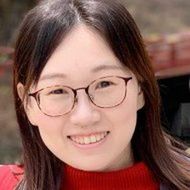Chasing Ma Ying-jeou with the Chinese in Nanjing
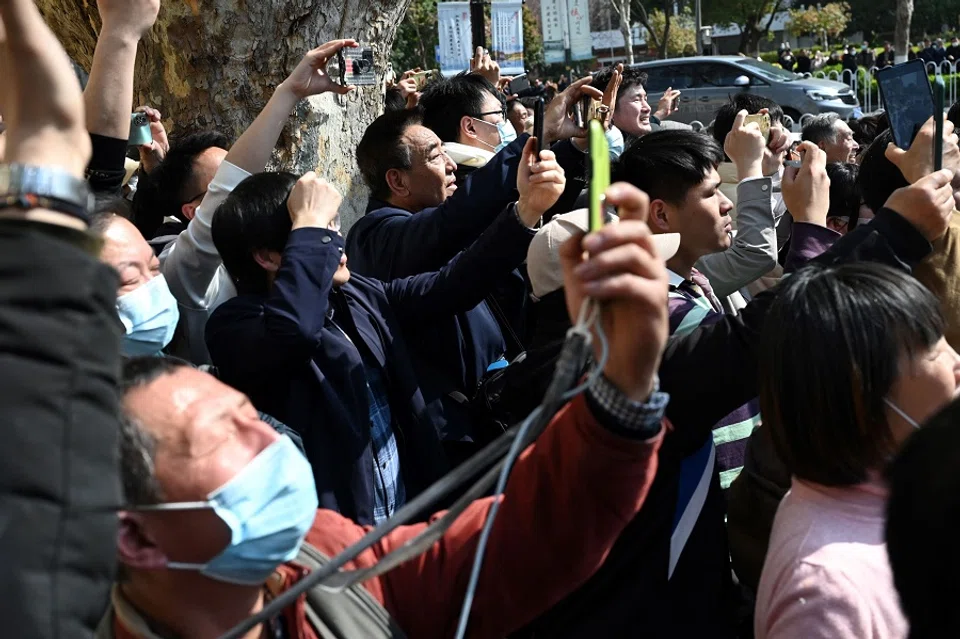
"It's coming, it's coming, I see a police car and a sedan behind it. Could he be inside?"
"It's still early. This is just part of the motorcade. You must look out for a Toyota Coaster minibus - all leaders sit in that type of minibus."
Outside the gates of the Presidential Palace in Nanjing, the former site of the Republic of China's Presidential Office, nearly 1,000 local residents and visitors from other mainland regions waited for "him" to arrive, standing together in a tight bunch, chattering away.
About ten minutes later, a motorcade of three Toyota Coaster minibuses, two buses and several sedans slowly approached. Everyone raised their phones to take pictures, with some shouting, "Ma Ying-jeou! Ma Ying-jeou!"
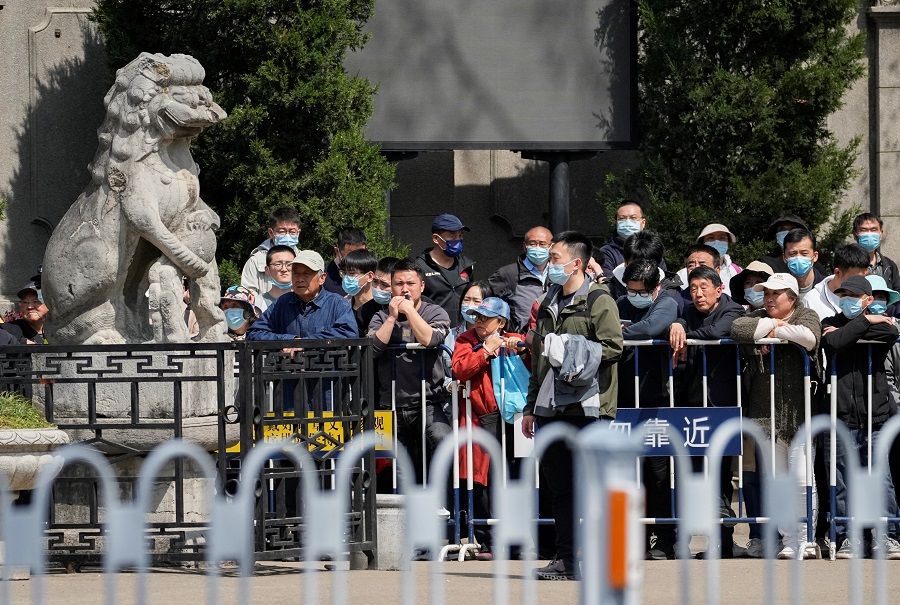
The motorcade passed through the gates without stopping. As soon as the last sedan disappeared out of sight, the atmosphere of anticipation immediately turned into disappointment. A man with a northern Chinese accent complained, "We waited under the blazing sun for two hours but didn't even catch a glimpse of a single person in the end!"
Catching a glimpse of history
Hoping to see former Taiwan President Ma Ying-jeou in real life, mainlanders flocked to the locations on Ma's itinerary during his two-day visit to Nanjing. But the tight security kept Ma's motorcade away from the people. The two roads on the left and right of John Rabe's residence in an alley were cleared, while the entrance of a subway station was even temporarily closed. Barricades were erected every ten metres outside the main entrance to the Memorial Hall of the Victims in Nanjing Massacre by Japanese Invaders, keeping the crowd of onlookers 30 metres away from the museum.
"Now that I look back, I realise that the situation was so much more relaxed and open back then." - Nanjing resident
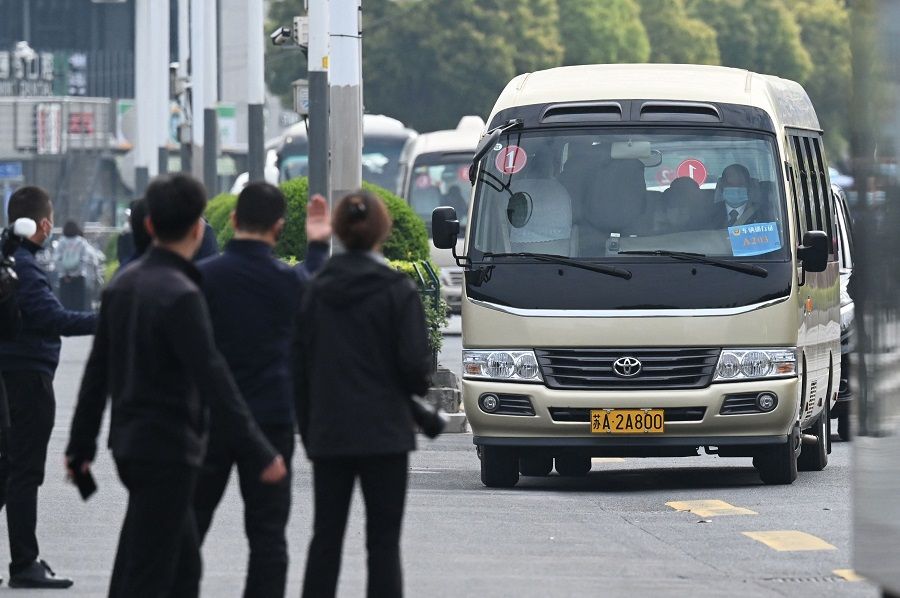
Even Dr. Sun Yat-sen's Mausoleum in Nanjing, which remained open to the public when former Taiwan politicians such as Lien Chan, James Soong Chu-yu and Hung Hsiu-chu visited, was closed during Ma's visit. Aside from a few tourists who made reservations to enter the mausoleum at 8.30 am, hundreds of residents who came early hoping to see Ma were shut out and could only glimpse his motorcade entering the mausoleum from a distance and follow the proceedings from live broadcasts by Ma's accompanying Taiwan media delegation.
During interviews with local residents onsite, more than one person compared Ma's mainland China visit to Lien Chan's "icebreaking" visit in 2005. Back then, Lien, who had already relinquished his vice-presidential role, visited the mainland in his capacity as Kuomintang (KMT) chairman. When he visited Dr. Sun Yat-sen's Mausoleum and delivered a speech there, he was seen interacting with the people. A Nanjing resident who was there at the time said that everyone fondly remembered Lien as "Grandpa Lien" after his visit. He sighed, "Now that I look back, I realise that the situation was so much more relaxed and open back then."
Still 'one family across the straits'?
In fact, until 2016 when then-KMT chairwoman Hung Hsiu-chu visited Dr. Sun Yat-sen's Mausoleum, a large number of people had been able to line the streets to catch a glimpse of Hung's visit. Some people even held banners reading "Taiwan and the mainland are one family" (台湾大陆一家亲) and shouted, "We welcome KMT chairwoman Hung Hsiu-chu and oppose Taiwan independence!"
"When he arrives, don't shout any slogans, it wouldn't be good. Those who dare shout, we will make sure you won't get away." - Chinese law and order enforcer
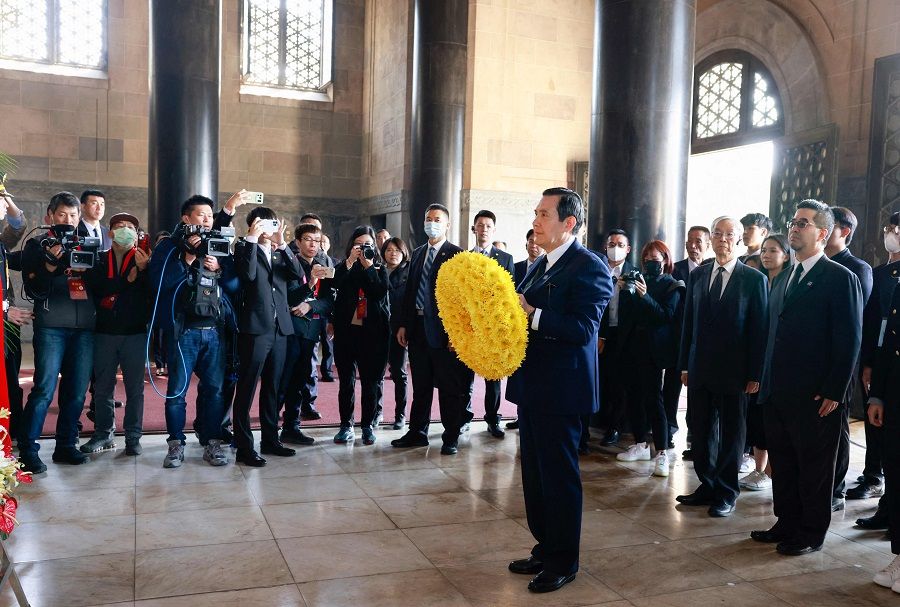
Seven years later, while waiting for Ma at the Memorial Hall of the Victims in Nanjing Massacre by Japanese Invaders, the crew keeping order clearly warned the bystanders: "When he arrives, don't shout any slogans, it wouldn't be good. Those who dare shout, we will make sure you won't get away."
Someone asked in return: "Not even 'one family across the straits'?"
Someone else joined in: "I heard that someone shouted 'one family across the straits' yesterday at Dr. Sun Yat-sen's Mausoleum, and they were taken away."
There was an immediate silence.
Ties more complicated than before
In recent years, there have been huge changes in the domestic and external situation for mainland China, and cross-strait relations are increasingly tense. The day before Ma arrived in mainland China, Honduras announced cutting diplomatic ties with Taiwan and establishing diplomatic ties with mainland China, adding to the controversy of this trip.
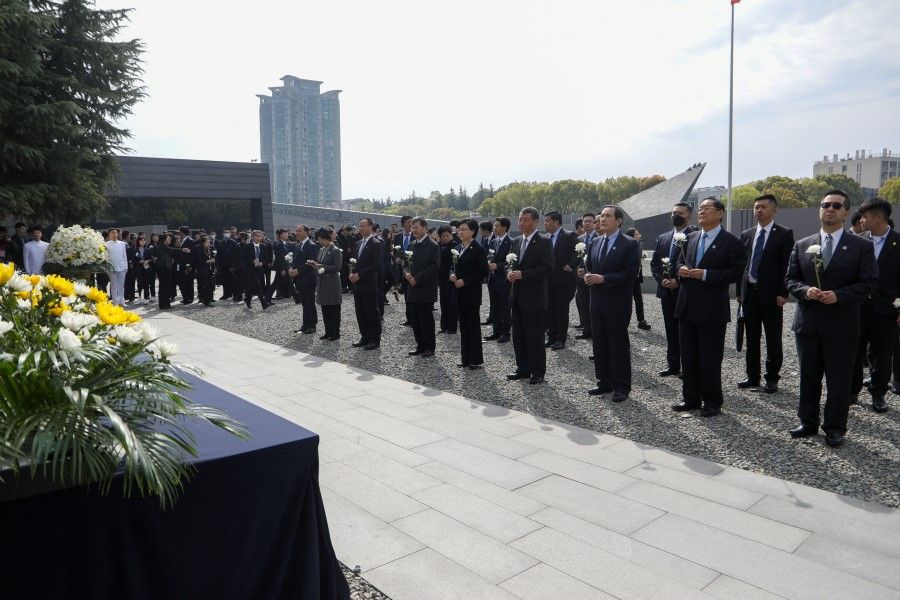
As the first former Taiwanese president in 74 years to visit mainland China, Ma said before the trip: "In fact, when I was 37 years old, I dealt with cross-Straits affairs in the government. I am 73 years old now, and I have waited 36 years for the opportunity to visit the mainland. It was indeed a long time."
It has been nearly seven years since Ma stepped down. What people are most interested to know is how much weight his words still carry in cross-strait relations, and whether the mainland China authorities will take him seriously. Even as current Taiwan president Tsai Ing-wen visits the US, how much can "Brother Ma" turn the tide and ease the cross-strait sabre rattling?
Hope for people-to-people interaction
When Ma landed in Shanghai, he was received by deputy director of the Taiwan Affairs Office (TAO) Chen Yuanfeng, and not Vice-Premier and Politburo Standing Committee member Ding Xuexiang as previously rumoured, while state media in mainland China also referred to him as Ma Ying-jeou without any designation, prompting Taiwan's Green camp to level criticisms of lowered standards of reception.
However, mainland Chinese state media quickly switched to referring to him as the "former KMT chairman". By the third day of his visit, Ma met with the party secretaries of Jiangsu and Hubei, while his itinerary was on the list of hot searches on Weibo and other social media platforms, gaining increasing attention among mainland Chinese netizens. It is definitely worth waiting a while to make a conclusion as to how this 12-day visit unfolds and what results it will achieve.
The young people from across the strait - and across the street - waved back, prompting more mainland Chinese to wave with both arms. Someone shouted: "Welcome over!"
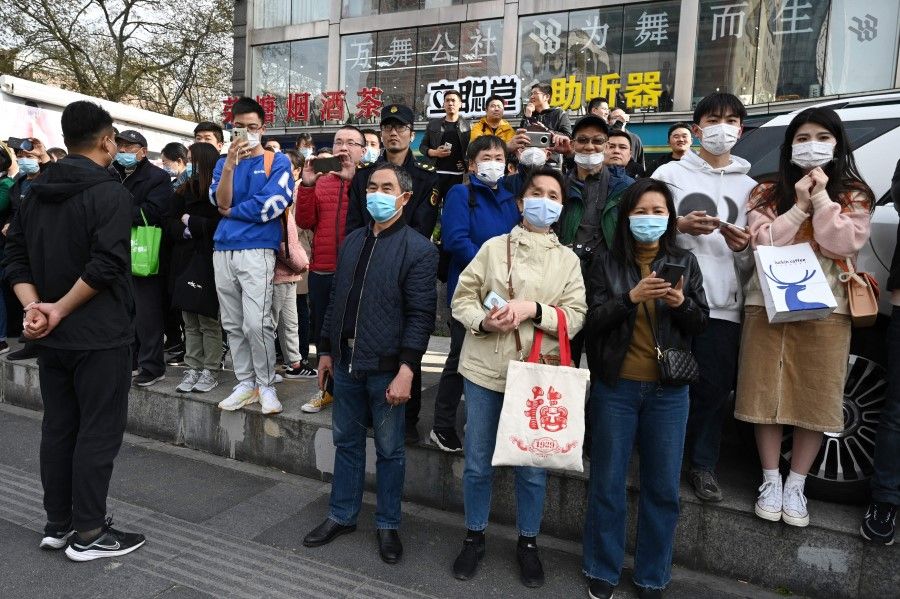
In "chasing Ma" with the mainland Chinese, what left the deepest impression on me was not the moment Ma appeared, but something trivial that happened while waiting for him.
On the afternoon of 28 March, the mainland Chinese who were cordoned off at a street outside John Rabe's former residence started waving hard at the Taiwanese students, who arrived before Ma. The young people from across the strait - and across the street - waved back, prompting more mainland Chinese to wave with both arms. Someone shouted: "Welcome over!"
In that instant, one felt the long wait was not a fruitless one. As a young mainland Chinese said when interviewed, first comes the interaction: "Taking the first step in communication is better than seeing each other as enemies."
This article was first published in Lianhe Zaobao as "等待马英九".
